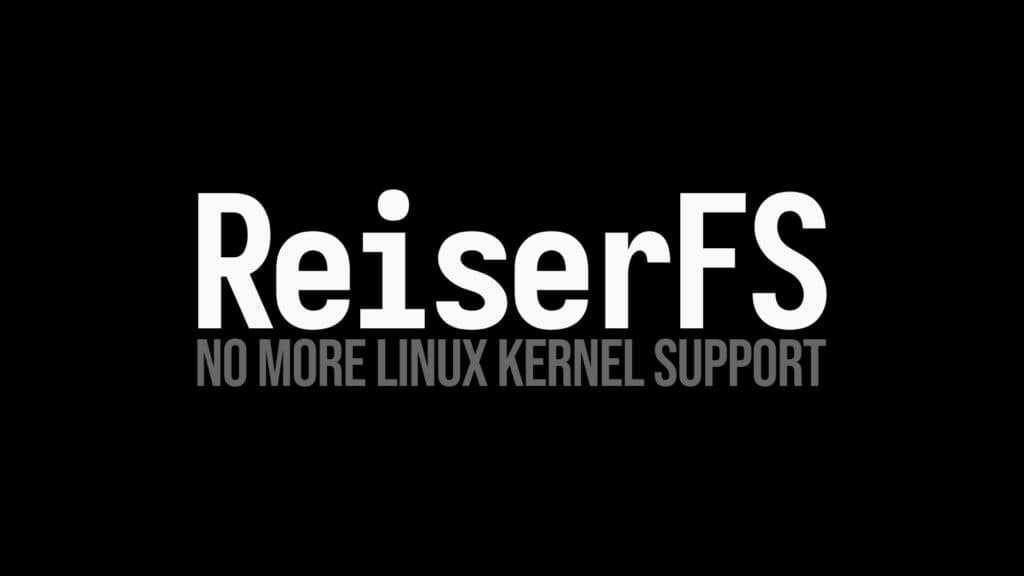With Linus Torvalds merging the PR yesterday to officially discontinue ReiserFS support in the upcoming Linux kernel 6.13, it’s safe to say this file system is now more of a historical artifact than a practical tool—destined to live on in computer science textbooks.
But before you get the impression that this is some monumental event, let’s set the record straight.
This has been a long time coming, with plenty of signs pointing to this conclusion over the years. We’re just here to mark the moment it finally happened. Now, for our younger readers, let’s take a quick look back at ReiserFS’s story.
Introduced in 2001 in kernel 2.4.1, it was a groundbreaking journaling file system created by Hans Reiser and his team at Namesys. Designed for Linux, it aimed to optimize performance for small files and efficiently handle metadata.
At the time, it was one of the first journaling file systems to become widely used on Linux, offering significant advantages in speed, scalability, and reliability over older file systems like ext2.
You may be interested in learning that ReiserFS was the default filesystem for SUSE from 2001 to 2006. It held that spot until ext3 took over as the default in the distribution’s installations.
ReiserFS was particularly known for its ability to manage large numbers of small files, making it ideal for applications that required quick access to such data. Its innovative metadata storage and allocation approach set new file system design standards.
Unfortunately, its development stagnated in 2008 following legal troubles surrounding its creator, Hans Reiser. This event also marked the end of Namesys and the file system’s official support. From that point forward, a small group of open-source enthusiasts continued to carry on it.
However, as newer file systems like ext4 and Btrfs offered better features and active development, ReiserFS gradually fell out of favor. Furthermore, because it lacked proper support and failed to address many existing technical issues like the year 2038 problem, the file system was officially deprecated in Linux 5.18, released in May 2022.
In light of all this, Linus Torvalds’ decision to merge the PR about removing ReiserFS support into the Linux kernel 6.13—set to debut early next year—rather logically ends a long-expected farewell.
These days, hardly anyone is still using that file system. But if, by some rare chance, you’re one of the few who are, don’t worry—you can keep using it with the Linux kernel up to version 6.12. That said, it’s a good idea to consider switching to a different file system for better support and long-term reliability.
Now, as Linux kernel 6.13 drops its support, ReiserFS is remembered as a pioneer—a file system that helped shape the evolution of modern storage solutions.

"legal troubles". PC in hyperdrive :)I had used it for several good years for a big pop toaster (multiple virtual main domains with many mailboxes), it was based on Qmail so lots of directories with thousands of tiny files, and ReiserFS was the best an handling reading and writing and keeping the allocation overhead low. I left ReiserFS because Qmail was dying, and I moved to a different system that uses mbox, and from spindles to SSD, so Reiser stoppped having an edge for me.